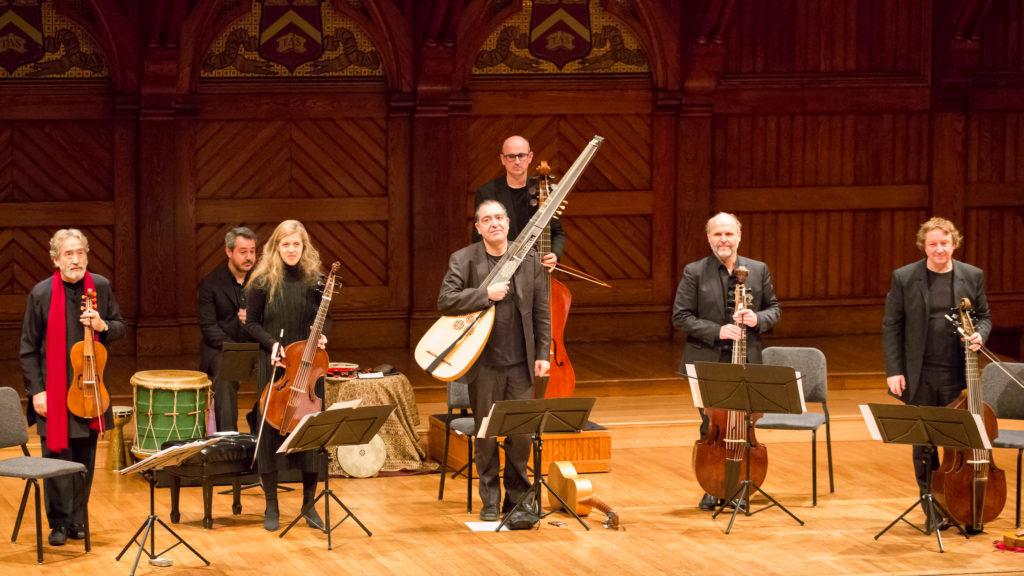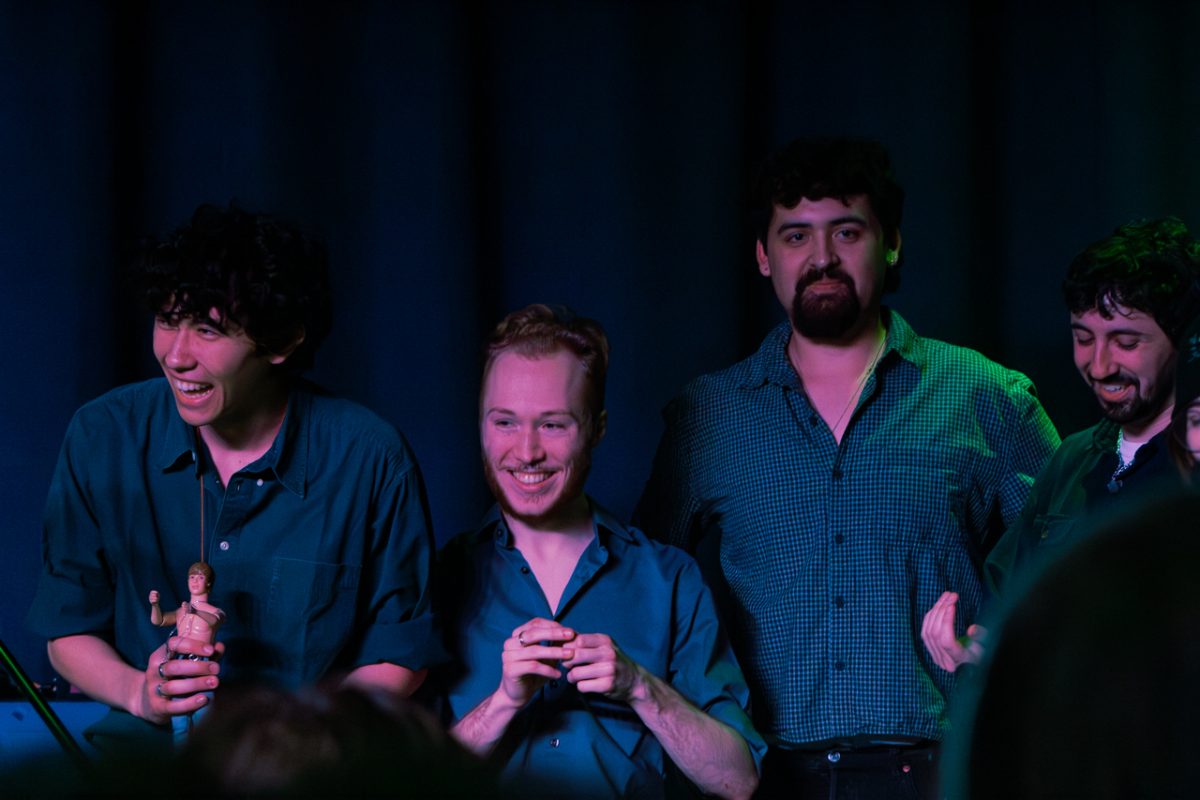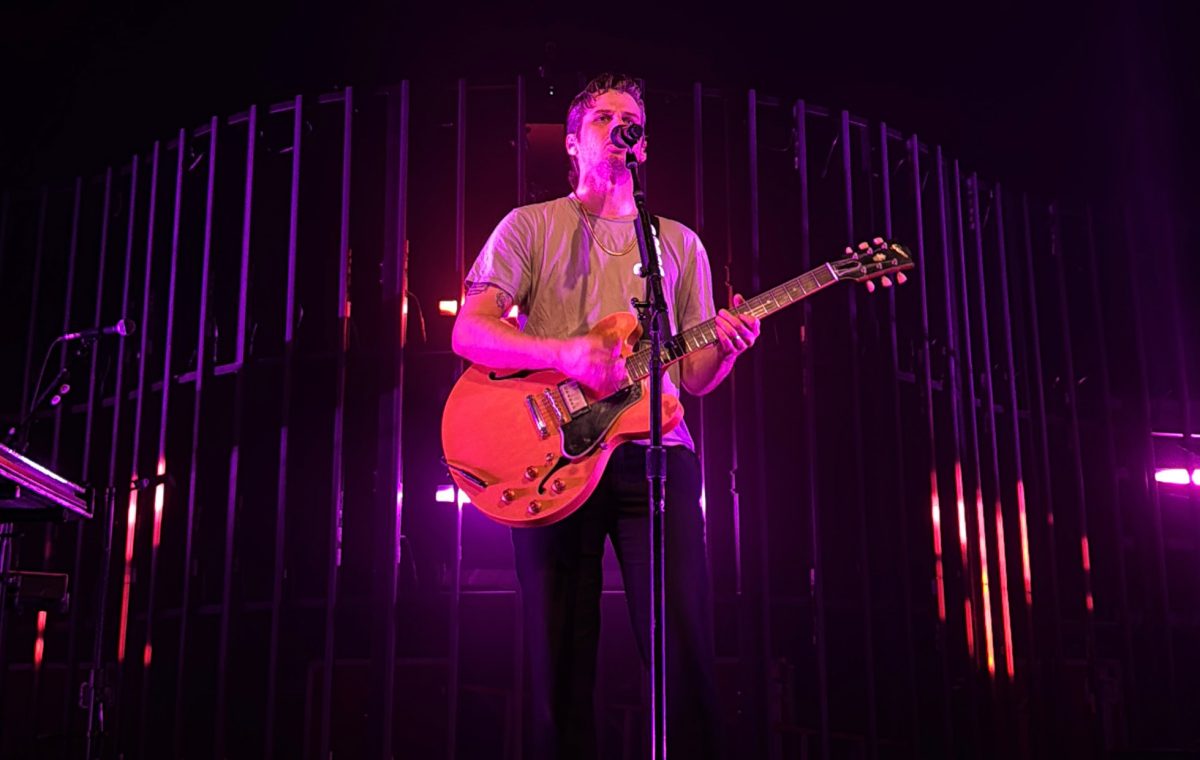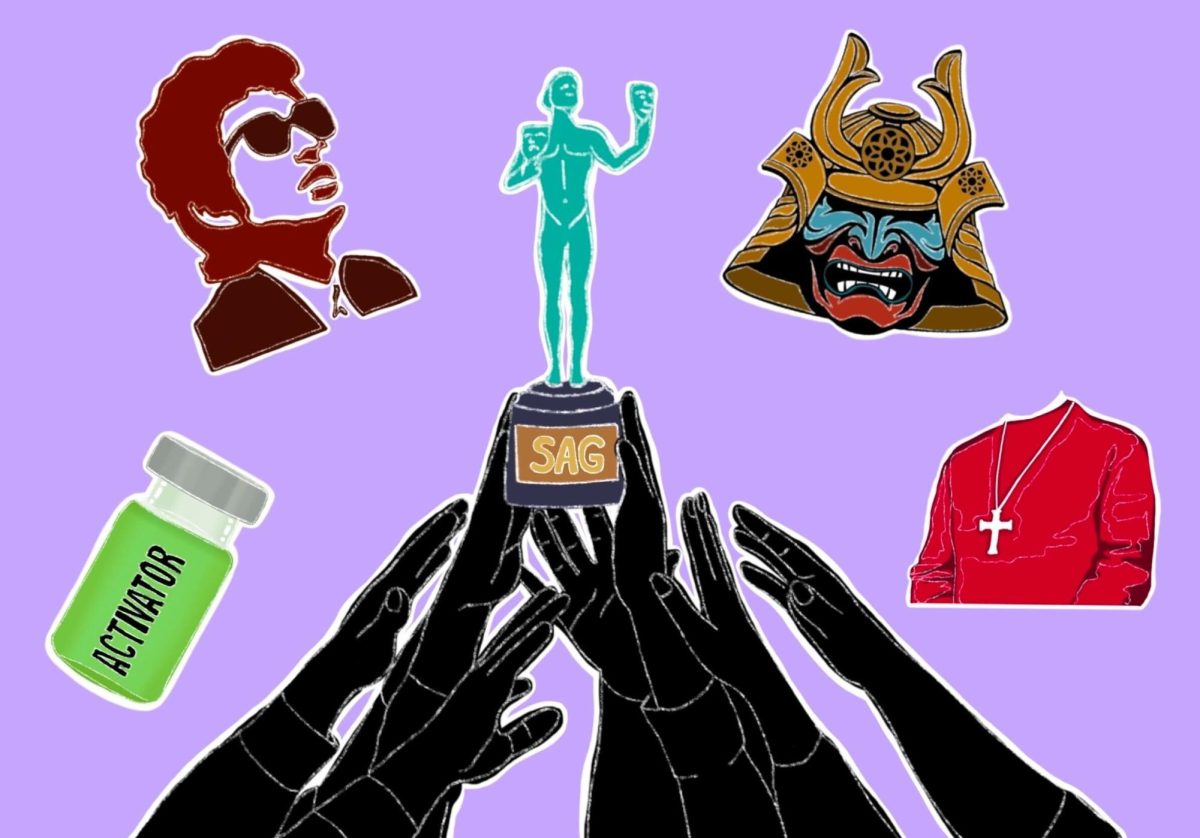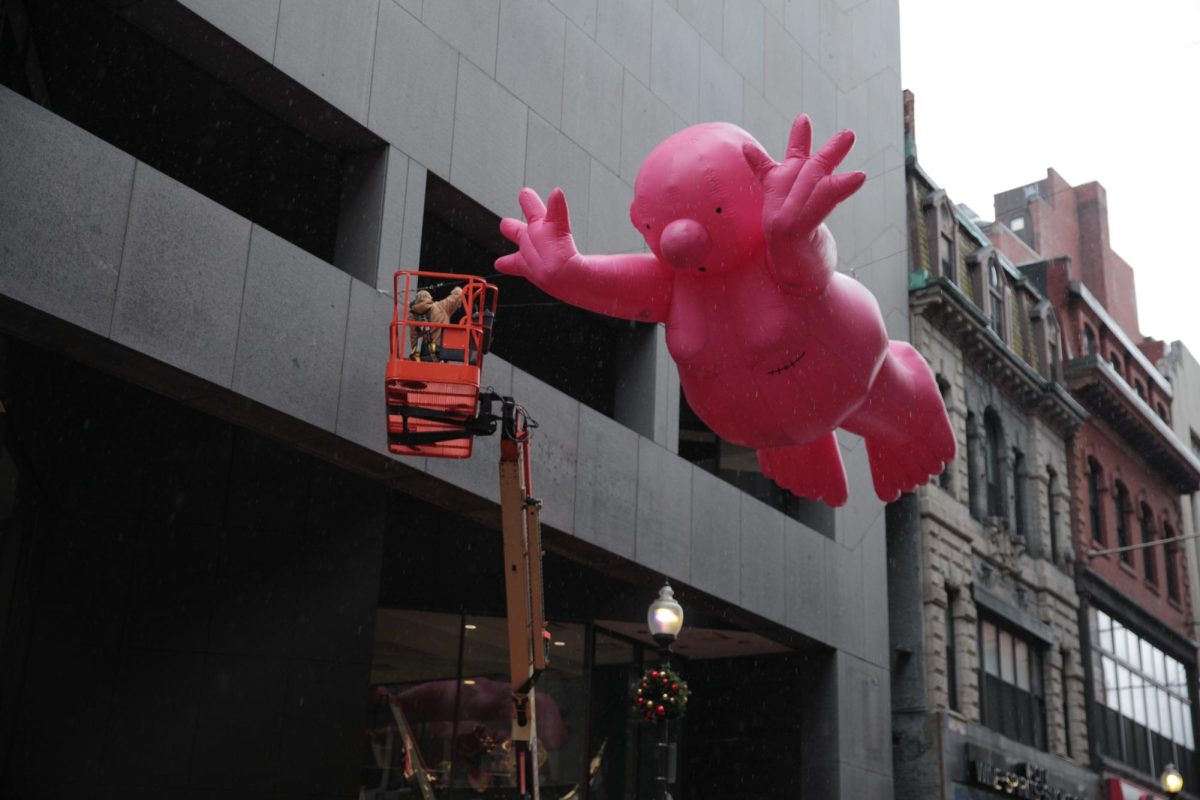By Sam Strella, news correspondent
The Boston Early Music Festival presented Hespèrion XXI at the Sanders Theatre of Harvard University on Sunday. Hespèrion XXI is a seven-person ensemble that tours worldwide, featuring authentic music and instruments from the early Baroque Period.
Sunday’s program boasted a diverse repertoire titled “Musica Nova,” performing music from countries across Europe such as England, Germany, France and Italy, spanning the 16th through 18th centuries. The ensemble’s director, Jordi Savall, is a famous musician, composer and conductor from Barcelona, well-known for resurrecting and popularizing early classical music.
Brian Stuart, director of marketing and publicity for the Boston Early Music Festival, said Savall is “one of the legendary figures in the field” of early music.
“For us, as one of North America’s leading early music presenters, working with him is a natural relationship and we’re very fortunate to have been able to continue it as long as we have,” Stuart said. “He always presents really fascinating programs working with some of the best artists in the world so it’s a perfect fit.”
Savall detailed the program and its influences before the concert, during which he said the repertoire was influenced by baroque music of Venice. The ensemble aims to present the music in its most authentic form, paying specific attention to the instruments used.
“We will play the whole concert with the same music,” Savall said. “I will play my treble viol from 1500 and my colleagues will play different viols from the altos to the tenor and bass, as well as the theorbo and guitar.”
Hespèrion XXI opened with three pieces from 1500 titled “Danze Venezione,” or as Savall described it, “music from the first dances of Venice.”
The next collection, called “Musica Nova,” contained music printed around 1540. After, the ensemble played Italian pieces from 1549, and then music from the Elizabethan time. After exploring English influences on classical dance music, the program delved into French and Italian music of the 17th century. This included pieces from composers such as Luigi Rossi (1597-1653) and Giuseppe Guami (1542-1611). The program moved back to Italian influences, with pieces such as “Passacaglia” from 1644.
“This sonata is beautiful with great freedom and flow,” Savall said. “The composer [Biagio Marini] is one of the best of his time.”
Hespèrion XXI concluded the program with some improvisations of classical pieces. They began with “Canarios” by an anonymous composer then closed with improvisations of Gallarda by Antonio Valente.
“This composer [Valente] has written more of the anthems that are a very typical Italian style, then also related to the evolution of dance music,” Savall said. “We find his influences in Mexican music still today.”
Liz Leeds, a Brookline resident, said she was looking forward to hearing Jordi Savall in concert.
“I first heard him in the movie ‘Tou les matins du monde.’ He was the musician for that movie and this was years ago and it stuck with me and I was so taken by the music of the soundtrack that I’ve been wanting to see him—and now I finally got to,” Leeds said.
The ensemble carries a long tradition with the Boston Early Music Festival, preserving and showcasing early classical music to the public.
Stuart said that Hespèrion XXI is one of the festival’s favorite groups to work with. They’ve been working together more than two decades.
“We’re always thrilled to have a chance to work with them and present them on our concert season and our festival as well,” Stuart said. “He always has interesting programs where he explores interesting music and interesting repertoire, so he’s really a crucial part of our mission.”
photo by Dylan Shen



